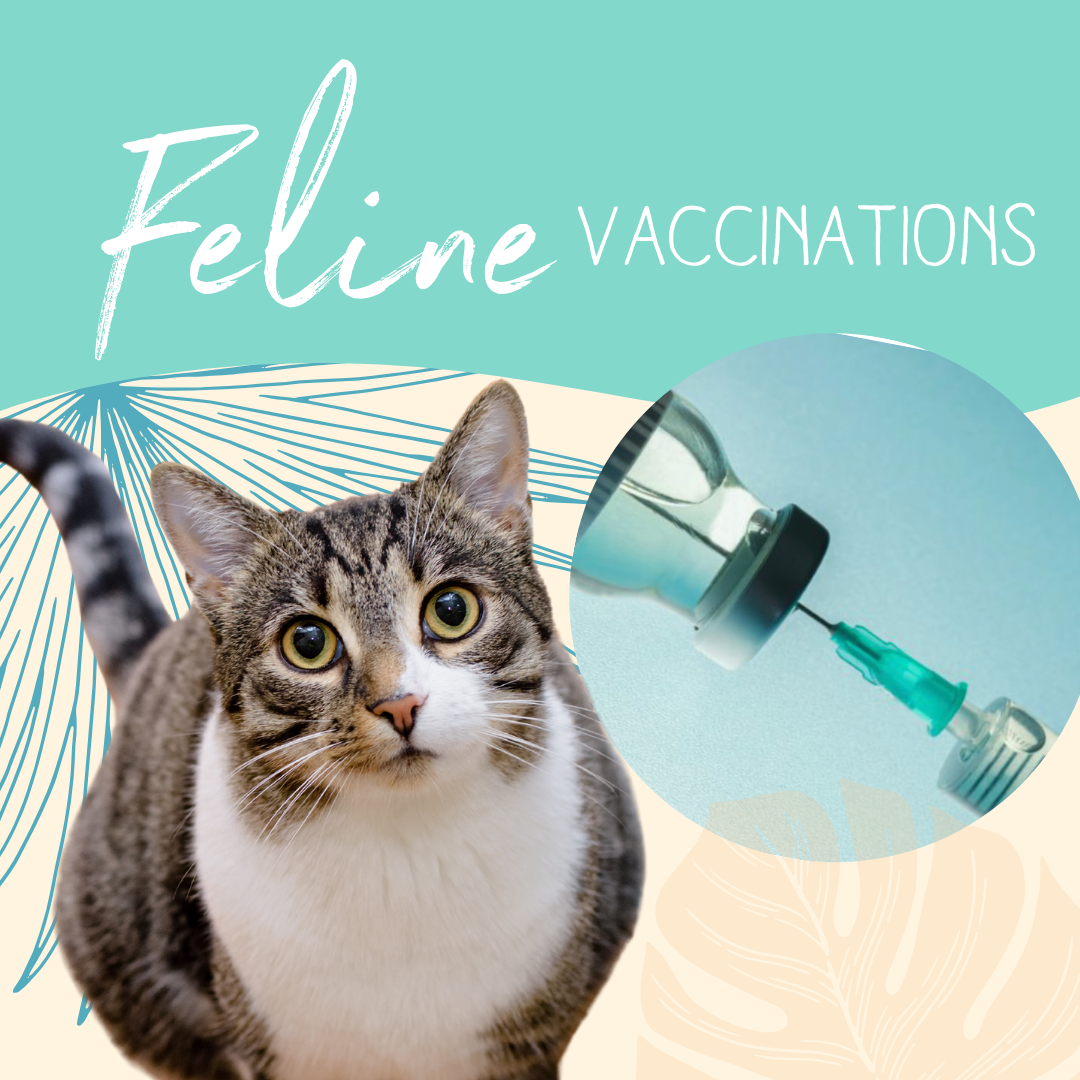
The Importance of Feline Vaccinations for Your Cat's Health
Annual care and vaccination of our feline family members is paramount to giving them an optimal quality of life. Whether you have a pampered indoor companion at home, or an adventurous outdoor explorer, disease and illness is an easily prevented threat when keeping up with the recommended protocol. Learn more about safeguarding your feline pal against a myriad of potential health threats with preventative medicine.
Why do we update feline vaccinations annually? Why do kittens need so many boosters?
As a kitten, feline vaccinations are administered on afour week cycle. Vaccines are given at 8 weeks of age, and again at 12 weeks of age, and 16 weeks of age. This phase of your kitten’s life is called the window of susceptibility. This is when kittens are no longer receiving antibodies from their mother’s milk, but do not yet have an immune system robust enough to defend the body against disease. Vaccinating at these ages ensures that your kitten’s body gains an appropriate amount of antibodies to prevent these diseases. Beyond the kitten series, vaccines are administered annually to every 3 years (depending on the vaccine type) throughout their life.
FVRCP Vaccine
The FVRCP vaccine, commonly known as the combination vaccine for cats, protects against three major feline diseases: Feline Viral Rhinotracheitis (FVR), Calicivirus, and Panleukopenia. Regular vaccination with FVRCP is considered part of the core vaccination protocol recommended for all cats, as any of these diseases are highly contagious and often life threatening if contracted. Below are more details about each of the diseases this vaccination prevents.
- Feline Viral Rhinotracheitis, caused by a feline herpesvirus, primarily leads to severe respiratory infections.
- Calicivirus causes a range of symptoms from mild oral ulcers to serious respiratory problems.
- Panleukopenia, sometimes known as feline parvovirus, is particularly severe and is often fatal. Kittens in particular are at high risk of death if infected.
FeLV Vaccine
Feline Leukemia Virus (FeLV) is a virus which primarily affects a cat’s immune system. FeLV makes cats more susceptible to infections and illnesses. Transmission of FeLV typically occurs through close contact, such as grooming or sharing food and water dishes. Although cats that go outdoors are at a higher risk of contracting FeLV, it is not impossible for the virus to be brought home on objects which came in close contact with an infected feline.
FIV – No Vaccine Available
Feline Immunodeficiency Virus (FIV) is a slow-acting virus, similar to HIV in humans. It primarily comprises a cat’s immune system, making them vulnerable to other infections. FIV is typically transmitted from cat to cat through deep bite wounds, which makes outdoor cats and those in high-density populations more susceptible. Although there is no vaccine for FIV, annual testing for outdoor felines is recommended as part of preventative medicine. Knowledge of FIV is important for medical professionals to be aware of, especially in times that a cat needs treatment of illness.